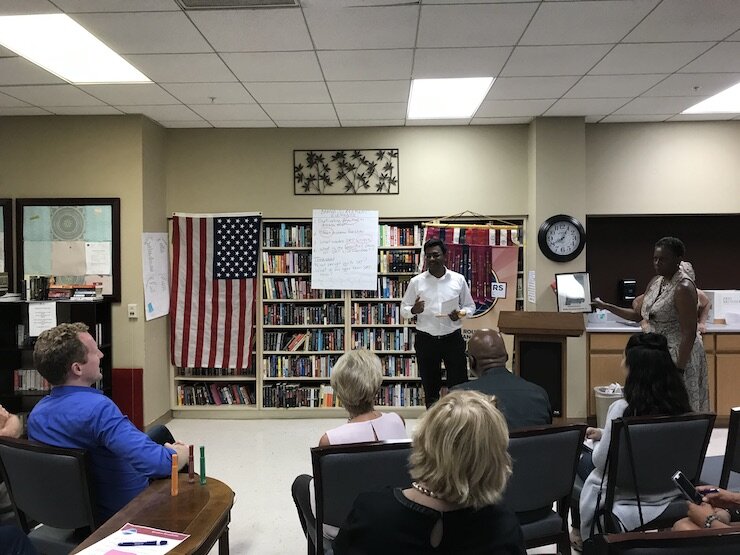Guide: How to give your best Introductory Speech
We love guests at Speakers Roundtable. Being a guest is the best way to get a feel for how our club can help you grow and develop as a speaker, as a professional, as a person. We have committed to providing a space of experimentation for transformation. As you, the guest, attend more meetings we love to invite you to participate in our coaching process so that, through immersion, you get to actively contribute to the meeting and to the collective growth process.
After four meetings you have met our minimum qualifications to give an introductory speech to the club. Based on this speech the membership holds a vote to decide if Speakers Roundtable is a good fit.
One of the most common questions we get from guests who decide to introduce themselves for membership is “What do I talk about in my Introductory Speech?”. We have created this guide to help SRT guests and potential new members generate interesting ways to introduce themselves to the club and show up in the best way for your speech. Every member of SRT has been through this process and it is very effective in setting speakers up for success.
Naveen Sureshbabu presents the Golden Gavel to one of our Remarkable members.
Let’s start by defining the Introductory Speech and give some guidance for preparing for this introduction:
The most successful Introductory Speeches:
A 5-7 minutes speech that shares about who you are and shows what you can do.
o Take a specific chapter of your life or a particular experience and talk about what happened and why it affected you.
OR
o Pick 3 significant hobbies, passions, key facts or life roles (mother, sister, church leader, Girl Scout leader, next-door neighbor, jogger, teacher, learner, etc.) about you and give a nice clear picture of why those tell who you are.
o Give a particular slice of your life.
o Use an analogical approach that allows the members to see you through an interesting lens.
Take the 5-7 minutes to capture the member’s attention and leave them wanting to hear more in the future.
o Do not do too much, like racing through a big long timeline or resume.
o You don't have to tell your deepest thoughts, fears, or losses, etc. There will likely be lots of time later when you can "unfold these stories." This is simply to get the members....and you.... started to get to know you.
o Stay away from the traditional “biopic” speech, which does not tend to be engaging.
Be creative, have fun, and explore being vulnerable.
o Consider approaching it as the first in a series of speeches about yourself, which will set you up with a lot of creative directions to explore in the future.
o A speech once used hats as props that revealed something of the speaker’s roles or interests.
o Surprise!! - members like to be surprised.

